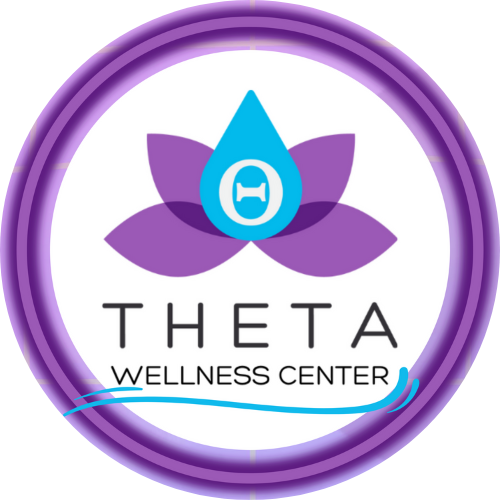It dawned on me after seeing Clayton bring Wesley, age 8, in for a 1-hour session in our Fire & Ice room at Theta Wellness Center in Springfield, MO, that I had yet to even think about the benefit that these practices would have on children. Having no children of my own, it wasn’t something that was on the front of my mind. What makes this worse is that I was one of the children that benefitted from these practices many years ago, and developed a love of the sauna that lasted into my adult years, the cold too a bit longer to feel love for. My father and I used to hit the sauna after the gym when I was just becoming a teenager, and a man I met in there taught me to take a cold shower after, my first “cold exposure” I suppose.
This caused me to look further into the contrast therapy/child relationship, how it benefitted them, was it safe, etc. Turns out, there are so many amazing benefits that children can gain. Some are immediate, others are more long term, and some are a mutually shared benefit between children and their families.
As holistic health and wellness practices gain popularity, many families are beginning to explore the benefits of traditional therapies such as sauna and cold plunge. These practices, while often associated with adults, can also offer significant health advantages for children over the age of five. Moreover, incorporating these activities into family routines can foster strong bonds and establish lifelong healthy habits. Lets dive into all this and then you can make an informed decision on whether this is something you would like to explore with your child.
The Benefits of Sauna Therapy for Children
Physical Health Benefits
Detoxification: Sauna therapy promotes sweating, which aids in the removal of toxins, including some heavy metals like lead and mercury. This detoxification process is essential for improving overall health in children.
Improved Circulation: Regular sauna sessions enhance blood circulation, which helps deliver oxygen and nutrients to tissues. This improved circulation is crucial for the growth and development of children.
Immune System Boost: Exposure to the heat of a sauna can stimulate the production of white blood cells, enhancing the immune system's ability to fight off infections. This can be particularly beneficial for children who are often exposed to germs and viruses at school.
Respiratory Health: Sauna use can help in clearing respiratory passages. For children who suffer from conditions like asthma or bronchitis, sauna sessions can provide relief by reducing congestion and improving breathing.
Mental and Emotional Benefits
Stress Reduction: Children today face various stressors, from academic pressures to social challenges. Sauna therapy promotes relaxation and can help children manage stress more effectively.
Improved Sleep: Regular sauna use can contribute to better sleep patterns by promoting relaxation and reducing stress levels.
Elevated Mood: Saunas have been shown to improve mood by making your brain more sensitive to endorphins. This means that you are generally happier with situations. Studies have shown that a single session can eliminate symptoms of depression and anxiety for up to 6 weeks.
The Benefits of Cold Plunge Therapy for Children
Physical Health Benefits
Enhanced Circulation: Cold plunge therapy stimulates blood flow and can help improve circulation. This is beneficial for muscle recovery and overall cardiovascular health in children.
Immune System Strengthening: Regular exposure to cold water can enhance the body's immune response, making children less susceptible to common illnesses.
Reduced Inflammation: Cold plunges can help reduce inflammation and soothe sore muscles. This can be particularly helpful for active children who participate in sports or physical activities.
Mental and Emotional Benefits
Improved Mood: Cold water immersion has been shown to increase the production of endorphins, the body's natural "feel-good" hormones. This can help improve mood and reduce symptoms of anxiety and depression.
Resilience Building: Regular exposure to cold water can help build mental resilience. Overcoming the initial discomfort of cold water can teach children to handle stress and challenges more effectively.
Increased Focus: Because of boosts of norepinephrine up to 530%, as well as dopamine, cold plunging is being studied for its focus increasing benefits and the potential impact that has on ADHD. Low dopamine levels, stress and anxiety, are often found in individuals with ADHD.
Bonding and Creating Healthy Habits
Family Bonding: Engaging in sauna and cold plunge therapy together can be a great way for families to bond. Shared wellness practices promote quality time and create opportunities for meaningful conversations.
Establishing Healthy Routines: Introducing children to these wellness practices at a young age helps establish healthy habits that can last a lifetime. By making sauna and cold plunge sessions a regular part of the family routine, parents can instill the importance of self-care and holistic health.
Leading by Example: When parents participate in these activities alongside their children, they set a positive example. Children are more likely to adopt healthy habits when they see their parents valuing and prioritizing wellness.
Incorporating sauna and cold plunge therapy into your family’s routine can provide numerous physical, mental, and emotional benefits for children, as well as yourself. These practices not only promote health and wellness but also offer opportunities for family bonding and the establishment of lifelong healthy habits. At Theta Wellness Center, we encourage families to explore these traditional therapies and experience the transformative benefits together.
IT is our goal to make these healthy practices part of our culture, just as they have been in other cultures for 1000’s of years. Start your journey towards holistic health and wellness today and feel the difference it makes in your family's well-being.

